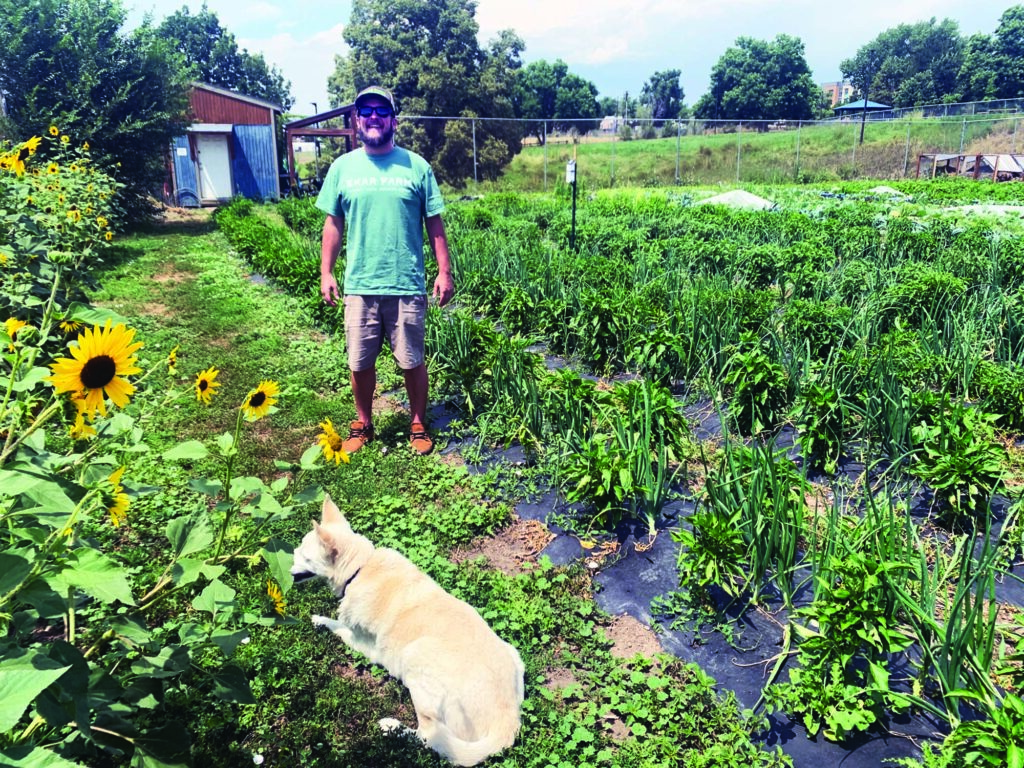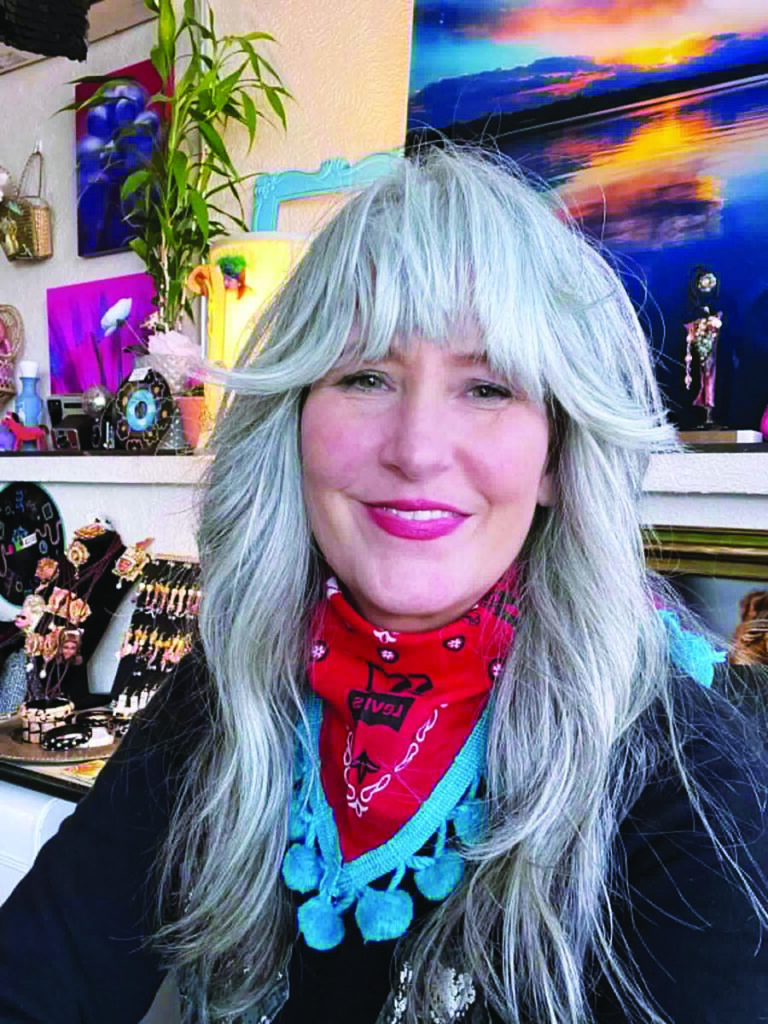Jason Plotkin began farming when he was 12 while living in a rural Connecticut suburb and never stopped.
Plotkin found himself urban farming for the first time when he moved to Denver. He noticed the demographics of wealthy White shoppers frequenting farmers markets where he sold his food. Plotkin always donated the day’s leftover food to food banks and other food access organizations. Eventually he realized he wanted all his produce to go to communities in need.
“One of the things about organic food, generally, is it’s gatekept in an economic class,” Plotkin said. “It’s not purposeful, but it costs more to raise or to grow. It costs more to wash. It brings the value and the cost of the product up, and then it kind of is reserved for wealthy people.”
Plotkin now serves as the executive director of Ekar Farm, a 501c3 non-profit organization, with missions in food justice, hunger relief, food sovereignty and hunger relief experiential education in the Denver community. They aim to give away about 20,000 pounds of food and interact with about 10,000 people in a year.
Ekar provides food for organizations including Vivent Health, Kavod Senior Life, Jewish Family Service, Hope Communities, Same Café, Spirit of the Sun, The Action Center and local food banks. Some food goes directly into communities like the Montbello neighborhood and to WIC shares.
Ekar Farm also buys foods like mushrooms from local purveyors and fruit from the Western Slope for community distribution.
Ekar Farm started in 2011, originating through a Jewish organization called Hazon, and stands as one of the few Jewish urban farms in operation. The farm started out of the Denver Academy of Torah, inspired by the Jewish core belief in tzedakah, or charity.
Plotkin worked as Ekar’s first farmer in 2012 and went on to become the first farm manager and director of operations. Plotkin left Ekar Farms in 2018 to focus on his own farm, Golden Acre Farm, but returned in 2021 and now serves as the executive director.
Although the farm serves more than just Jews in need of food, it partners with Jewish organizations like B’nai Havurah and Denver Doikayt, among others, for events like Shabbat dinners.
“Oftentimes people who are outside the Jewish community don’t realize that Judaism is very much community-based,” Plotkin said. “It’s such a huge part of being Jewish, whether that’s donating money, time or resources. That’s essentially how we see our tzedakah-based org: where we build community and we provide resources at no cost.”
Ekar Farms also aims to cultivate multicultural crops, as much as the latitude allows.
“Because we work with a lot of people who aren’t from the U.S., or have different backgrounds that are from the U.S., we try our best to incorporate cultural relevancy into our products by growing things like epazote, cilantro and Thai hot peppers, things that maybe we wouldn’t normally grow,” Plotkin said.
Ekar has always been an organic farm, but to Plotkin organic goes beyond not using synthetic pesticides, fertilizers or fungicides. Ekar farms regenerates the land by using methods like cover cropping, adding organic amendments and making their own compost.
“I like this idea of regenerative, nutrient-dense growing,” Plotkin said. “Thinking about this concept where you’re improving the land that you’re on while you take from it.”
Ekar Farm has farmed land at Mountair Park in Lakewood for the past year, in conjunction with Sprout City Farms and the City of Lakewood.
Ekar Farm is eager to relocate to their new farm location away from the Light Rail corridor in Lakewood, which has caused some strain on the farmers, Plotkin said.
“This is a very challenging site because there is such a large unhoused presence that utilizes this corridor between Sheridan Light Rail Stop and Perry Light Rail Stop,” Plotkin said. “There’s a bike path right here that people will sleep on.”
In the last month an Ekar farm employee has administered Narcan three times to people near the farm who were overdosing.
“We’re not paramedics,” Plotkin said. “We work with unhoused folks by providing resources to them in the form of food, but not other resources. When you’re expected to take that on as an organization that has no background in it, it gets even more challenging.”
Starting in spring 2026 Ekar Farms will farm full-time at their space at Shalom Park in Aurora. The Jewish non-profit elder care center will rent their vacant 2.86 acre lot to Ekar Farm for $1 a year. Despite cheap rental costs, developing the land is expensive, from putting water lines in, building pergolas and increasing the soil complexity.
With the new farm space Ekar Farm plans on opening their services to more multifunctional and holistic purposes. Plans for a heated greenhouse will allow the farm to run year-round. Ekar hopes to build a produce distribution hub, complete with a classroom for education around topics like production-based education and food system analytics. Ekar Farm will continue to host initiatives like their spring seed and plant giveaway and intergenerational gardening programs for participants ages 3 to the elderly.
Ekar Farm is well funded by grants from entities including the Rose Community Foundation and Lowe’s Home Improvement but also relies on donations from the community. The farm accepts time or money donations on their website ekarfarm.org. Ekar allows formal volunteer groups or individuals and is open for volunteer help every Sunday 9 a.m. to 1 p.m.






